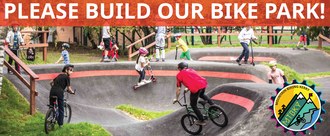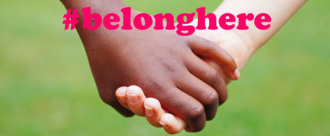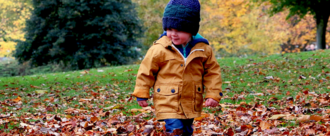- Featured
- Animal Rights
- Anti-racism
- Arts & Culture
- Children
- Climate
- Corporate accountability
- Crime
- Disability rights
- Economic
- Education
- Environment
- Food and Sustainable Production
- Gender Equality
- Governance and Transparency
- Health
- Housing
- LGBT Rights
- Mental health
- Northern Ireland
- Planning
- Privacy and Data Protection
- Rural Inequality
- Social Justice
- Trade
- Transport and Infrastructure
- Workers' Rights
- More
-
Environmental Bus Shelter @ the Community HallIt is important as over 30 children between primary & secondary school use this in the morning time & with our climate many mornings they are going into school saturated from the rain when waiting on the bus. We would like to provide shelter for them and have an eco approach to our strucure by creating a grass roof for biodiversity and the structure would include bird feeders and a bug hotel in the back of the structure .10 of 100 SignaturesCreated by Sharon Mckeever
-
#BuildourroadThis is important because 13 years of incredible work from the community and its stakeholders is being torn up because a Minister and his party believe they know more than Moyross community. This party have never tried to support our community and are now actively destroying its future. This is important for all communities to show those who are publicly elected that they cannot deafen the voice of the people.717 of 800 SignaturesCreated by Jason Craig
-
Reopen no.29 Georgian house museumThere is no other existing dedicated museum of Dublin s Georgian heritage. It reflected multiple elements of 18th c Dublin society and was a valuable resource for Dubliners and tourists alike.2,413 of 3,000 SignaturesCreated by Aoife Eleanor
-
Ag fas le cheile! Say yes to a 100 % Organic, Chemical-free and GMO-free IrelandDear Friends, I just created the petition: Ag fas le cheile! Say yes to a 100% Organic, 100% Chemical-free and 100% GMO-free Ireland. It would mean a lot to me if you took a moment to add your name because: A journey’s end matters not, for it is the journey itself that inspires, enriches and delights. As I took “the road less travelled” 18 months ago, I could not have imagined the amount of learning to be had on this road; for I am now less dependent on certain modern conveniences than I was in May 2019. Now in November 2020, I am • 100% shampoo-free • 100% clothes detergent-free • 100% washing-up liquid free • 100% dishwasher liquid free • 100% all-purpose cleaner free • 99% bin-free. In short, grey water that leaves my house is virtually chemical free with a minimal toxic load to the environment. My garden is 100% Organic, 100% Chemical-free and 100% GMO-free and has been for about 10 years. With the continued support from local Clare businesses and shops, Clare media and a waste prevention grant from Clare County Council, Operation de-Plastification with its “slim your bin or bin your bin challenge” has been able to inform, encourage, support and lead-by-example on the quest to waste reduction, particularly plastic related waste in the shape of single-use plastic bottles and plastic packaging. With the submission to Clare County Council for the Clare Local Development Plan 2022 – 2028 "100% Organic, 100% Chemical-free and 100% GMO-free", I am hoping to sow the seed for a different Clare, and by extension a different Ireland, to highlight a path that has been taken by other countries successfully and to encourage as many people of all ages and guises, including businesses and politicians, to re-think their habits and attitudes in relation to • everyday conveniences • everyday routines • everyday practices to aid the recovery of our planet, with an intact environment which in turn will support our future. The attempt to combine the Operation de-Plastification campaign and the vision for a post-pandemic County Clare, has generated the “ag fás le chéile” petition, where shoppers, sellers and consumers can voice, with their signature, their request for an enduring “green” Ireland. The petition aims to address all people living in Ireland: • Shoppers: we want to buy local, sustainable, affordable, nutritious, delicious, organic, plastic-packaging-free, chemical-free and gmo-free goods • Sellers: we want to sell local, sustainable, affordable, nutritious, delicious, organic, plastic-packaging-free, chemical-free and gmo-free goods • Consumers: we want to enjoy local, sustainable, affordable, nutritious, delicious, organic, plastic-packaging-free, chemical-free and gmo-free goods Assuring our environment’s and our survival, “the road not taken” may lead to a life and life-style where less is more, as less is more than enough in my experience. With the kindest regards, Cornelia Wahli Operation de-Plastification Campaign Slim your Bin or Bin your Bin Challenge “Ag fás le chéile” Petition ____________________________________________________________________ https://my.uplift.ie/petitions/ag-fas-le-cheile-say-yes-to-a-100-organic-chemical-free-and-gmo-free-ireland Real change happens when everyday people like you and I come together and stand up for what we believe in. Together we can reach lots of people and help create change around this important issue. After you've signed the petition, could you also take a moment to share it with others? It's really easy – all you need to do is forward this email. Thank you!75 of 100 SignaturesCreated by cornelia wahli
-
Build Tralee Urban Bike ParkWe have proven the demand for a bike park in Tralee. Our intention is to have this park open to the public, free to use and designed to be accessible to all. Any age and any ability level. We have already secured the backing of Tralee Councillors and Kerry County Council have placed the project on the local area plan. Now we need to see the wheels begin to turn and this project get into gear!466 of 500 SignaturesCreated by Anluan Dunne
-
Born Here Belong HereThe mental stress and burden faced by undocumented children, the fear of deportation and stigma associated with not being considered a citizen and the difficulties faced when accessing supports that other children take for granted, can be taken away by a minor change to an unkind and unjust amendment to our constitution that was introduced in 2004. The Irish Nationality and Citizenship (Naturalisation of Minors Born in Ireland) Bill would provide a pathway to citizenship for children who are currently facing deportation, despite having been born in Ireland and resident here all their lives. The 27th Amendment to the Constitution, which passed in 2004, removed the automatic right to citizenship upon birth. Once it was passed, children born in Ireland lost the constitutional right to citizenship on birth; the amendment gives the Oireachtas power to legislate for routes to citizenship and naturalisation instead. Following the referendum, the Irish Nationality and Citizenship Act 2004 was passed which effectively removed any accessible route to citizenship for children born in Ireland. As a result, Irish citizenship law is now based on blood ties, not birthright. We do not need another referendum to reverse this. The 2004 amendment gave the Oireachtas the power to legislate for more generous pathways to citizenship. The Irish Nationality and Citizenship (Naturalisation of Minors Born in Ireland) Bill 2018 would provide a pathway to citizenship for children born in Ireland. It was passed through Second Stage by a majority of Senators on 21 November 2018; Senators from Fianna Fáil, Sinn Féin and the Green Party supported it, although Fine Gael opposed it. The Bill is being brought back before the Seanad for ‘Committee Stage’ on Wednesday 2nd of December next. Please contact your local Senator and TD's to say that you believe that Children born here should belong here.284 of 300 SignaturesCreated by Eva Walsh
-
Stop putting victims addresses on certain protection ordersUnder the Domestic Violence Act 2018, there are three different orders that victims of abuse can apply at the District Court. These are; Barring Orders, Safety Orders, and Temporary Protection Orders. In many cases, the perpetrator must be notified of an order against them - either orally by the applicant or Gardaí, or they will be notified of the order by post. An order does not take effect until it is served to the respondent. In the case of a protection order, or an interim barring order, the court usually directs that order to be served on the respondent by An Garda Síochána. . The Orders that cause the most issue are Barring or Safety orders as these have both the victims and the abusers addresses on them.151 of 200 SignaturesCreated by Linda Hayden
-
Support for Mental Health in Irish SchoolsAccessible therapeutic counselling for children is a proven cost-effective early intervention with the ability to alleviate distress for young people as well as pressure on already overwhelmed mental health services and on overstretched school staff. An on-call counselling support service with onward referral could provide students with an in-school option for seeking help, support and an extra entry point to accessing mental health services, often in a time of crisis. From the IACP. "On 18th May, 2019 the IACP outlined a proposal for the expansion of existing mental health supports to secondary schools, via the introduction of a State funded, counselling support service for children. Although these types of supports are available in many other countries, and are proven to be a cost effective, easily accessible early intervention, there is no such established support system in Ireland. Consider the current pandemic, the IACP is now proposing that these counselling supports be extended to primary school children. Prior to the current crisis a national survey – commissioned by the IACP and carried out by Behaviour & Attitudes (March 2019) found that there is very strong support amongst Irish adults for therapeutic counselling to be made available in all Irish schools – with 9 in 10 saying that they’d like to see this."781 of 800 SignaturesCreated by Alison Murphy

-
Birr Primary Care CentrePrimary Care Centre for Birr This week the HSE turned down the Rectory Field as a location for the proposed Birr Primary Care Centre. For years the HSE have been informing the people of Birr that they are committed to providing a Primary Care Centre in the town and to date nothing has happened. This weeks news has set us back to square one. Tullamore has a Primary care centre, the Primary Care Centre in Banagher is near completion so why is Birr no further on?? We need to show the HSE that the people of Birr and surrounding areas need a Primary care centre and we want the HSE to make this a priority. The HSE have given an assurance that space will be provided for the possible return of our “Out of Hours (MIDOC) “ when the Birr Primary Care Centre is built. The longer the delay the longer the wait to get our MIDOC back to BIRR. We are also asking for an “X-RAY Diagnostic Hub” in the new PCC. It is amazing how many cars travel to Tullamore by day and night for this service. We are fed up of travelling and fed up of waiting weeks to see a doctor. We urge the Minister for Health and the HSE to take immediate action on developing a primary care centre for Birr without further delay.385 of 400 SignaturesCreated by Cllr Clare Claffey

-
#BringChangeThere is a great deal of concern from parents, teachers, principals and elected members of the Northern Ireland Assembly about the current private system of transfer tests and particularly during this pandemic year.61 of 100 SignaturesCreated by Naomi McBurney
-
Reclose the SchoolsStudents account for 20% of Ireland's population. Sending students to school in the current climate, while also considering that online learning was practiced successfully last year, is an unnecessary risk to public safety. Issues facing schools include confusion over the definition of a close contact, no guarantee of when a test result will be returned to a student, and no option for high-risk teachers to teach from home. An inadequate following of restrictions, including a lack of social distancing before and after school as well as at break times, masks not being used at break times and hand sanitizers being recalled because they were not safe are just some of the health concerns affecting schools. Finally, students are struggling massively with their mental health right now. The fear of contracting and possibly spreading Covid-19 to loved ones and high risk friends is leaving many students stressed and afraid to go to school.23,408 of 25,000 SignaturesCreated by Close Schools
-
Allow Clothes to be sold during Covid19 restrictionsAll citizens have the right to buy clothing. This is particularly important for children. Clothing is a basic necessity and right. Parents expecting babies are entitled and should be able to buy the clothes they need for their children. Parents have the right and should be able to buy clothing and shoes for their growing children. Parents should be able to buy coats and weather appropriate items for their children.71 of 100 SignaturesCreated by Jean Finnerty












.png)